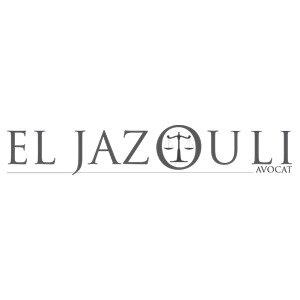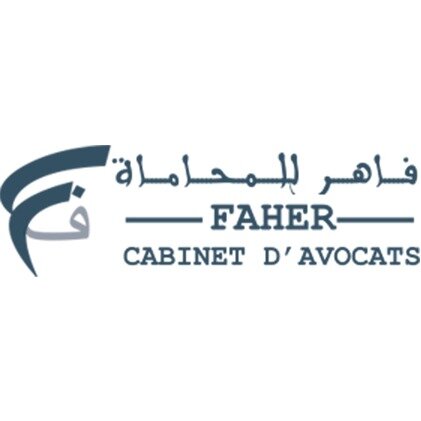Best Probate Lawyers in Morocco
Share your needs with us, get contacted by law firms.
Free. Takes 2 min.
Or refine your search by selecting a city:
List of the best lawyers in Morocco
About Probate Law in Morocco
Probate law in Morocco deals with the legal processes involved in administering the estate of a deceased person. This includes distributing the deceased person’s assets, paying any debts and taxes due, and resolving any claims against the estate. The probate process is guided by both religious and civil laws, predominantly the Moroccan Family Code (Moudawana) and the Civil Code. In Morocco, succession and inheritance matters are significantly influenced by Islamic law (Shariah), which determines the distribution of a deceased individual's estate among heirs.
Why You May Need a Lawyer
Engaging a lawyer can be crucial in various situations involving probate in Morocco:
- If there is a dispute among heirs or beneficiaries regarding the distribution of the estate.
- If the deceased left a complex estate, involving properties, businesses, or investments that require professional handling.
- When there is no will (intestate) and legal guidance is necessary to ensure the estate is distributed according to Moroccan law.
- If there are significant debts or liabilities associated with the estate that need resolution.
- When foreign assets are involved, complicating the legal proceedings due to jurisdictional issues.
Local Laws Overview
Morocco's probate processes are governed by a combination of Shariah law and the Moroccan Family Code. Key aspects include:
- The notion of 'Tafwid,' which allows the court to appoint an executor or administrator to manage the estate if not specified by the deceased.
- The requirement to resolve outstanding debts of the deceased before the distribution of assets to heirs.
- The principle of 'Faraid,' which determines fixed shares of inheritance based on Islamic law, typically recognizing children, spouse, and parents as primary heirs.
- The acknowledgment that non-Muslim foreigners residing in Morocco may have their respective national inheritance laws applied.
- Acknowledgement of wills, which must conform to both Moroccan civil law and Shariah to be considered valid.
Frequently Asked Questions
What is the first step in the probate process in Morocco?
The first step involves obtaining a death certificate and then a legal declaration of inheritance from the local court, which will identify all the legitimate heirs.
Can a will override the fixed shares determined by Islamic inheritance laws?
No, in Morocco, while a person can make a will, it cannot override the mandatory shares provided by Islamic inheritance laws, but it can bequeath up to one-third of their estate to non-heirs.
How long does the probate process usually take in Morocco?
This can vary significantly depending on the complexity of the estate and whether there are any legal disputes. Generally, it can range from a few months to several years.
Are foreign nationals subject to the same probate laws as Moroccans?
Foreign nationals residing in Morocco may be subject to their home country's laws regarding inheritance, but local laws might also apply, especially where real estate is concerned.
What happens if the deceased had debts?
Debts must be paid off from the estate before any distribution to heirs can take place. Creditors have legal priority over heirs once the inheritance process has started.
Is it necessary to hire a lawyer for probate proceedings?
While not mandatory, hiring a lawyer is highly recommended to navigate the complexities of Moroccan probate processes, especially if the estate is large or there are disputes.
How are disputes among heirs resolved?
Disputes are typically resolved through negotiation or mediation, but if these fail, they can be settled in court, guided by Moroccan laws and principles of fairness.
Is it possible to contest a will?
Yes, a will can be contested if there are doubts about its validity, capacity of the testator, or if it does not comply with Moroccan laws.
Are there taxes on inheritance in Morocco?
As of current regulations, Morocco does not impose inheritance tax, but there might be other fees related to the probate process that can apply.
Can joint ownership of property affect the probate process?
Yes, joint ownership, especially if not clearly defined, can complicate the probate process, requiring clear legal interpretation or consensus among stakeholders.
Additional Resources
For further information on probate matters, you can consult the following:
- The Ministry of Justice: Provides general guidelines and legal frameworks related to probate law in Morocco.
- Local Bar Associations: Often a valuable resource to find competent legal representation for probate issues.
- Moroccan Family Code: Reviewing this document can provide deeper insights into inheritance laws and rights.
Next Steps
If you need legal assistance in probate matters, consider the following steps:
- Contact a qualified local lawyer with experience in probate and inheritance law.
- Gather all relevant documents, including the death certificate, any existing wills, and asset details.
- Initiate the probate process by applying for a legal declaration of inheritance from the local court.
- Engage in open communication with all heirs and stakeholders to facilitate a smoother probate process.
Lawzana helps you find the best lawyers and law firms in Morocco through a curated and pre-screened list of qualified legal professionals. Our platform offers rankings and detailed profiles of attorneys and law firms, allowing you to compare based on practice areas, including Probate, experience, and client feedback.
Each profile includes a description of the firm's areas of practice, client reviews, team members and partners, year of establishment, spoken languages, office locations, contact information, social media presence, and any published articles or resources. Most firms on our platform speak English and are experienced in both local and international legal matters.
Get a quote from top-rated law firms in Morocco — quickly, securely, and without unnecessary hassle.
Disclaimer:
The information provided on this page is for general informational purposes only and does not constitute legal advice. While we strive to ensure the accuracy and relevance of the content, legal information may change over time, and interpretations of the law can vary. You should always consult with a qualified legal professional for advice specific to your situation.
We disclaim all liability for actions taken or not taken based on the content of this page. If you believe any information is incorrect or outdated, please contact us, and we will review and update it where appropriate.
Browse probate law firms by city in Morocco
Refine your search by selecting a city.











